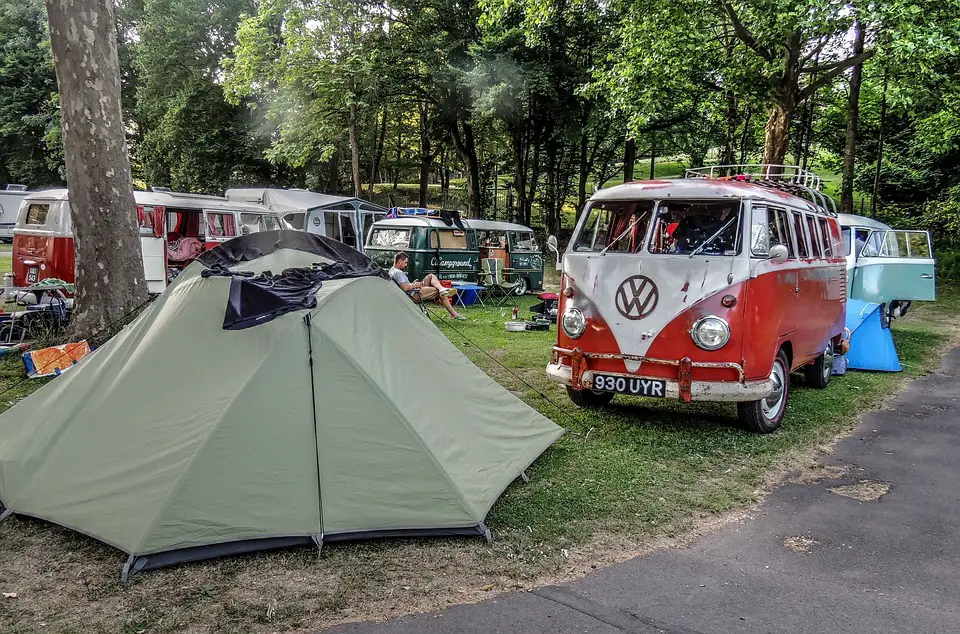When it comes to camping, many outdoor enthusiasts seek a more adventurous and immersive experience.
Leaning towards a rugged and unique sleeping setup, cowboy camping offers an exhilarating way to connect with nature.
Sleeping in the wilderness, under the vast starry sky, without a tent or any camping gear creates a thrilling experience like no other.
However, it also presents its own set of challenges, making it a daring option only for the most seasoned adventurers.
The Appeal of Cowboy Camping
Cowboy camping is all about embracing the raw beauty of the wilderness and connecting deeply with nature.
The absence of a tent allows you to truly experience the night sky, feeling closer to the stars and moon as you fall asleep under their watchful gaze.
The sense of freedom and openness is unparalleled.
This stripped-down form of camping also enables you to travel light, as you don’t need to carry bulky camping gear, adding to the allure for backpackers and hikers.
Thrills and Challenges
While cowboy camping offers a thrilling experience, it is not without its challenges.
One of the main obstacles faced is exposure to the elements.
Without a tent, you are more vulnerable to the weather conditions, such as sudden rain or strong winds.
It is essential to check the weather forecast and be prepared with appropriate clothing and gear, such as a waterproof sleeping bag and a tarp or bivy sack to protect yourself.
Another challenge is the increased risk of encounters with wildlife.
Without the barrier of a tent, you must be aware of your surroundings and take precautions to keep your food secure and maintain a safe distance from potentially dangerous animals.
Location and Safety
Choosing the right location is crucial for a successful cowboy camping experience.
Look for an area with a flat and dry surface, away from water sources to avoid unexpected rain causing a flood.
It is also essential to be mindful of any potential hazards, such as unstable terrain or dead trees, which could pose a risk during the night.
Additionally, ensure you are aware of any regulations regarding camping in your chosen area, as some places may have restrictions or require permits.
Preparing for Cowboy Camping
Before embarking on a cowboy camping adventure, it is important to be well-prepared.
Here are some essential tips:
– Invest in a quality sleeping pad: Since you won’t have the comfort of a sleeping bag, a good sleeping pad will provide insulation and cushioning against the hard ground.
– Pack appropriate gear: Bring a headlamp or flashlight, a multi-purpose tool, insect repellent, and a bear-resistant food container (if camping in bear country).
– Master basic wilderness skills: Familiarize yourself with navigation, building a campfire, and first aid. These skills can be valuable in any camping situation, but they are particularly important when sleeping without a tent.
– Practice Leave No Trace principles: As with any camping trip, it is essential to minimize your impact on the environment. Clean up after yourself, dispose of waste properly, and respect wildlife and other campers.
FAQs
Q: Is cowboy camping safe?
A: Cowboy camping can be safe if you take the necessary precautions. It is crucial to research the area, have awareness of any potential risks, and be prepared with appropriate gear.
Q: How do I stay protected from insects while cowboy camping?
A: To prevent insect bites while cowboy camping, apply insect repellent before settling down for the night. Wearing long sleeves and pants can also offer additional protection.
Q: What if it starts raining during cowboy camping?
A: Sudden rain can pose a challenge while cowboy camping. It is important to have a plan in place by carrying a lightweight waterproof sleeping bag or emergency bivy sack and a tarp to create a makeshift shelter.
Q: Can I go cowboy camping anywhere?
A: While cowboy camping is allowed in many areas, it is essential to research local regulations and be mindful of any restrictions or permits required. Always practice Leave No Trace principles and respect private property.
Q: What are the advantages of cowboy camping compared to traditional camping?
A: Cowboy camping offers a more immersive and intimate experience with nature. It allows for a greater connection to the night sky and a minimalistic approach to camping, reducing the need for bulky gear.





